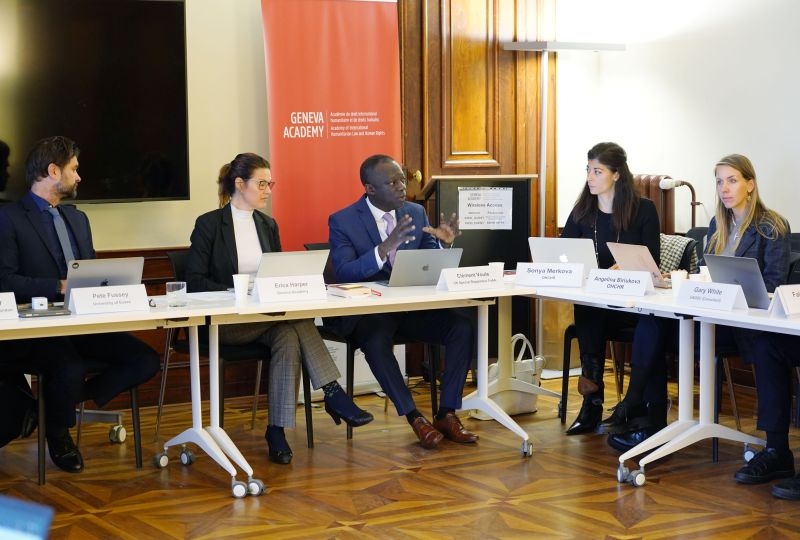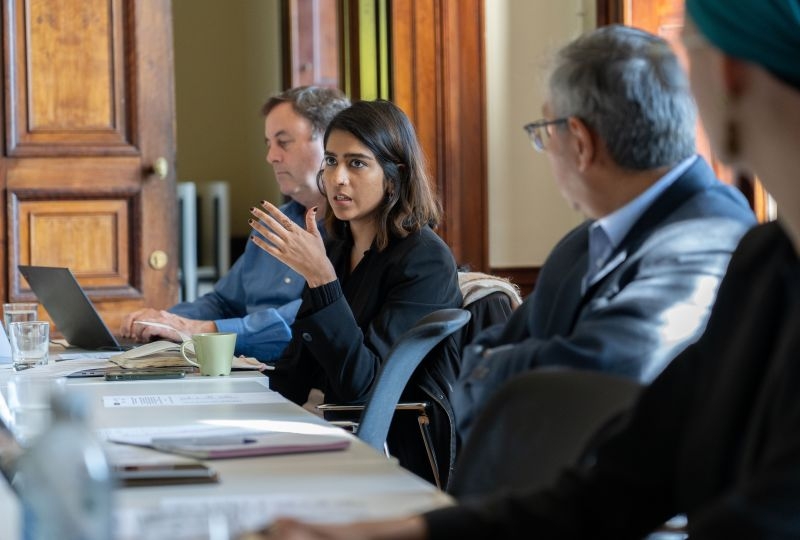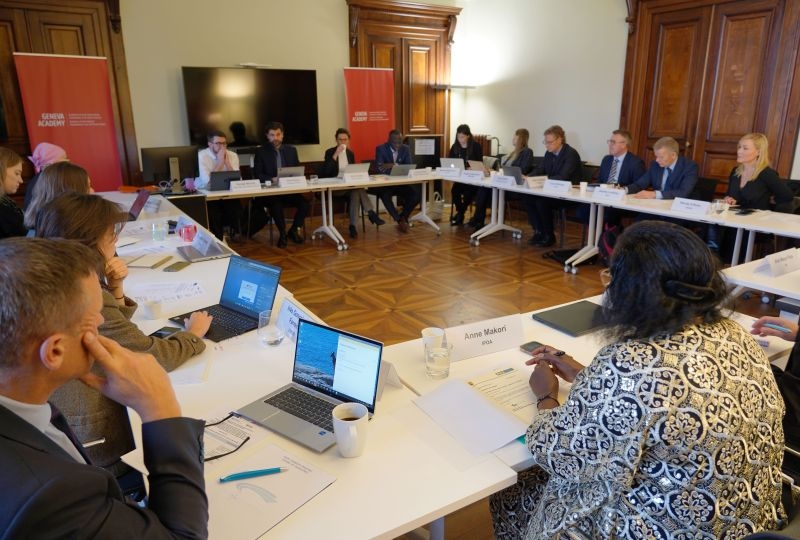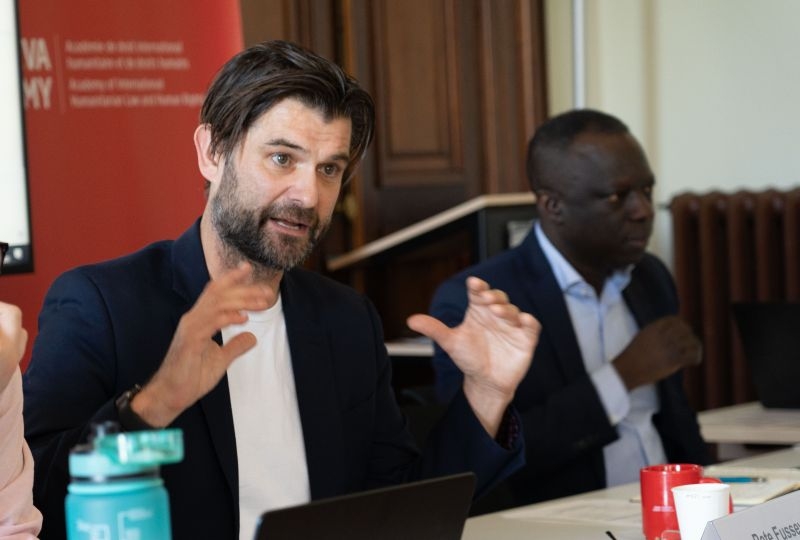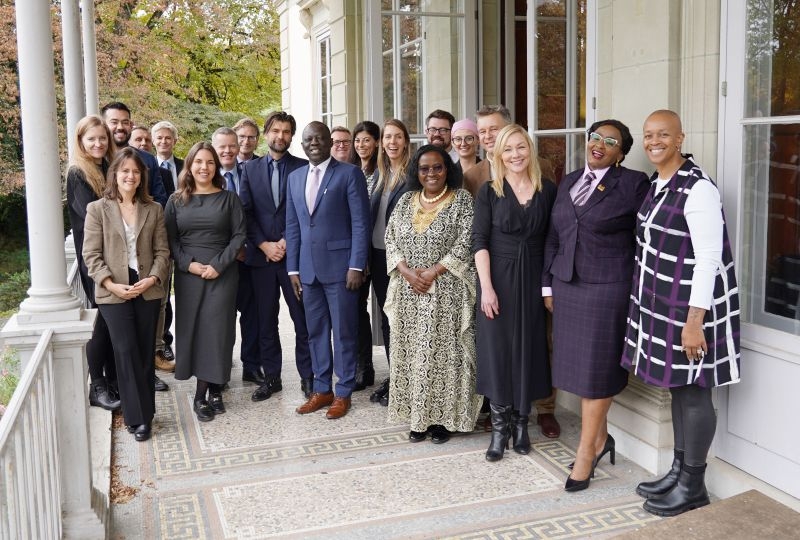20 November 2023
During a two-day workshop on the application and potential misuse of new and emerging digital technologies, including in law enforcement and the management of peaceful assemblies, academics, law enforcement professionals, human rights lawyers and representatives from international organizations and civil society focused on how best human rights can be protected.
The workshop – jointly organized with the UN Special Rapporteur on the rights to freedom of peaceful assembly and of association, the Queen Mary University of London and the University of Essex, with the support of the UN Office of Drugs and Crime and the Office of the UN High Commissioner for Human Rights – is part of our work on human rights and new technologies, and a broader consultative process led by the UN Special Rapporteur on the rights to freedom of peaceful assembly and of association.
‘I’ve been mandated by the UN Human Rights Council to develop practical tools to help law enforcement officials protect and promote human rights during peaceful protests. This latest global workshop focused on identifying and gathering law enforcement practices on the use and misuse of technologies in the context of policing peaceful assemblies, and how to ensure their use complies with international human rights law and standards in such contexts’ explains the UN Special Rapporteur Clément Voule.
‘There is currently no clear global framework and a clear gap on national level for regulating the use of digital technologies in the context of peaceful assemblies. The tools I am developing are intended to address this regulatory shortcoming by providing clear guidelines for Law Enforcement to use these technologies for the facilitation of protests, rather than their suppression’ he adds.
‘When new and emerging digital technologies – especially those developed in the military space – spill over into law enforcement, serious human rights challenges emerge. Examples include the misuse of video and online surveillance and the collection and retention of personal data. This can have a chilling effect on public discourse and further marginalize groups like LGBTQI+, underlines our Head of Research and Policy Studies Dr Erica Harper.
‘For our purpose, the outcomes of this workshop will also be documented in a forthcoming paper that will address the implications of the latest advancements in surveillance monitoring technology, especially the transfer of military technologies to civilian policing’ she adds.


